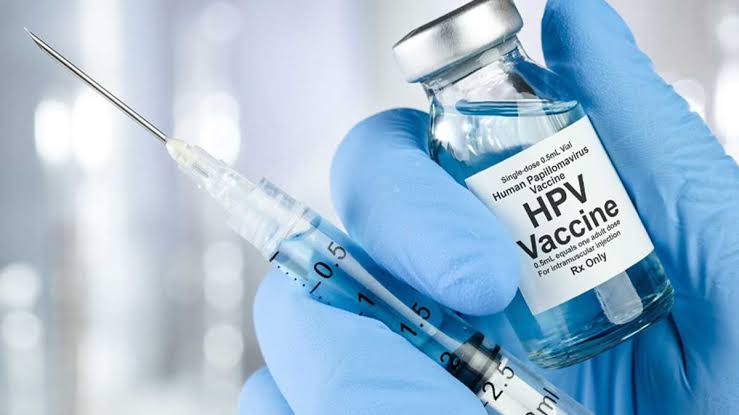The Federal Government of Nigeria has announced plans to introduce the Human papillomavirus (HPV) vaccine on September 25, 2023, as part of efforts to combat cervical cancer among women and girls.
This announcement was made during the bi-annual review meeting of religious leaders focused on Primary Health Care delivery in Abuja on Monday.
The administration of the HPV vaccine to girls aged nine to fifteen aims to prevent cervical cancer, a type of cancer that affects the cells of the cervix. Most cervical cancers are caused by various strains of the Human papillomavirus (HPV), a sexually transmitted infection.
The HPV vaccine has the potential to prevent over 90% of HPV-associated cancers. Notably, the World Health Organization identifies HPV types 16 and 18, prevalent in Nigeria, as responsible for nearly half of high-grade cervical pre-cancers.
Cervical cancer poses a significant health challenge in Nigeria, with approximately 14,000 women diagnosed and around 7,968 women losing their lives to the disease each year.
Dr. Muhammad Pate, the Coordinating Minister of Health and Social Welfare, emphasized the importance of integrating spiritual and scientific knowledge to address health challenges. He noted that religious organizations contribute significantly to healthcare delivery in the country, playing a vital role in the primary, secondary, and tertiary levels of care.
The Federal Government, led by President Bola Tinubu, is committed to making healthcare affordable and accessible to all Nigerians. Dr. Pate called for the support of the faith community in implementing the government’s healthcare agenda, stressing the need for community involvement and trust-building.
Dr. Faisal Shuaib, the Executive Director and CEO of the National Primary Health Care Development Agency, urged religious leaders to raise awareness about the free HPV vaccination, dispel myths, and encourage better health-seeking behaviors within their congregations.
Dr. Shuaib stated, “On September 25th this year, we will be introducing the HPV vaccine that prevents cervical cancer when given to our daughters between the ages of nine to 15 years.”
Sultan Abubakar III, President of the Nigeria Supreme Council for Islamic Affairs, highlighted the crucial link between food security and health. He encouraged proactive measures to address these fundamental issues.
Rev. Joseph, representing the President of the Christian Association of Nigeria, Archbishop Daniel Okoh, expressed satisfaction that primary healthcare is receiving appropriate attention and that religious leaders are engaged in dialogue about health-related matters.
These initiatives aim to improve healthcare accessibility, especially in rural areas, through collaboration between religious institutions and the government.




